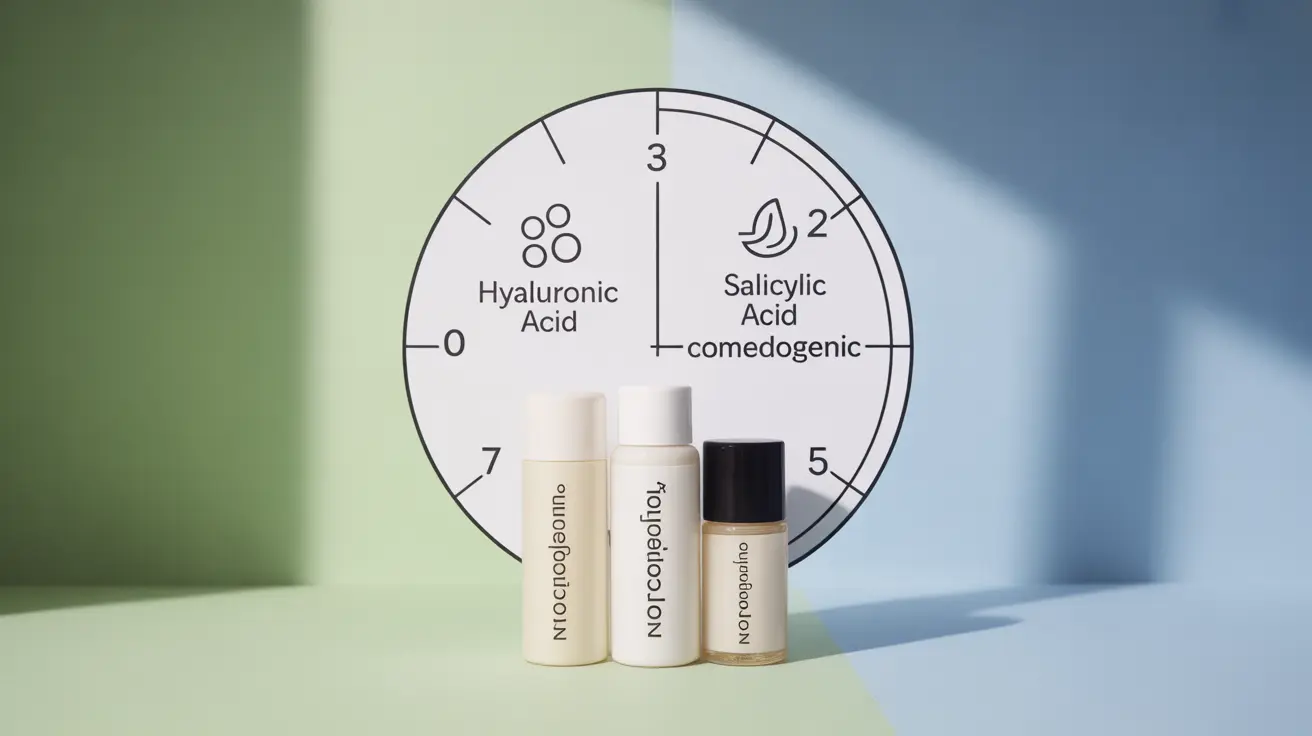If you're dealing with acne-prone skin or frequent breakouts, you've likely encountered the term "non-comedogenic" on skincare products. This important designation can make a significant difference in your skin's health and appearance. Understanding what non-comedogenic means and how to choose the right products can help you maintain clear, healthy skin.
In this comprehensive guide, we'll explore everything you need to know about non-comedogenic products, from their benefits to how to identify them in your skincare routine.
What Does Non-Comedogenic Mean?
Non-comedogenic refers to products and ingredients that are specifically formulated not to clog pores. The term "comedogenic" comes from "comedo," which is the medical name for a clogged hair follicle that can develop into acne. Therefore, non-comedogenic products are designed to minimize the risk of pore blockages and subsequent breakouts.
Understanding the Comedogenic Scale
Skincare ingredients are rated on a comedogenic scale from 0 to 5, where:
- 0: Will not clog pores
- 1: Low likelihood of clogging pores
- 2: Moderately low likelihood
- 3: Moderate likelihood
- 4: Fairly high likelihood
- 5: High likelihood of clogging pores
Products labeled as non-comedogenic typically contain ingredients rated 0-2 on this scale.
Common Non-Comedogenic Ingredients
Several ingredients are known for their non-comedogenic properties:
- Hyaluronic acid
- Niacinamide
- Salicylic acid
- Glycerin
- Aloe vera
- Light oils (such as jojoba oil)
Benefits of Non-Comedogenic Products
Using non-comedogenic products offers several advantages for skin health:
- Reduced risk of breakouts
- Better pore health
- Improved skin texture
- Balanced moisture levels
- Suitable for sensitive skin types
How to Choose Non-Comedogenic Products
When selecting non-comedogenic products, consider these factors:
- Check ingredient lists carefully
- Look for the non-comedogenic label
- Consider your skin type
- Choose products appropriate for your specific concerns
- Pay attention to product consistency (lighter formulations are generally better)
Frequently Asked Questions
What does non-comedogenic mean and how does it help prevent acne and clogged pores?
Non-comedogenic means that a product won't clog your pores. These products are specifically formulated with ingredients that allow your skin to breathe and maintain proper oil balance, helping to prevent acne formation and keep pores clear.
Are non-comedogenic skincare products suitable for all skin types, including sensitive and oily skin?
Yes, non-comedogenic products are generally suitable for all skin types. They're particularly beneficial for sensitive and oily skin types because they're formulated to avoid pore-clogging ingredients that can cause irritation or breakouts.
How can I identify non-comedogenic ingredients in skincare and makeup products?
Look for the non-comedogenic label on products and familiarize yourself with common non-comedogenic ingredients. Check ingredient lists against comedogenic ratings, and avoid products containing known pore-clogging ingredients like certain oils and butters.
Can using non-comedogenic moisturizers and sunscreens reduce the risk of breakouts?
Yes, using non-comedogenic moisturizers and sunscreens can significantly reduce the risk of breakouts. These products provide necessary hydration and protection while allowing your skin to breathe and maintain proper oil balance.
What is the difference between non-comedogenic and comedogenic products, and why does it matter for acne-prone skin?
Non-comedogenic products are formulated not to clog pores, while comedogenic products contain ingredients that may block pores. This distinction is crucial for acne-prone skin because blocked pores are a primary cause of breakouts and acne formation.
By choosing non-comedogenic products and maintaining a consistent skincare routine, you can help keep your skin clear, healthy, and free from unnecessary breakouts. Remember to patch test new products and introduce them gradually into your skincare routine for the best results.




